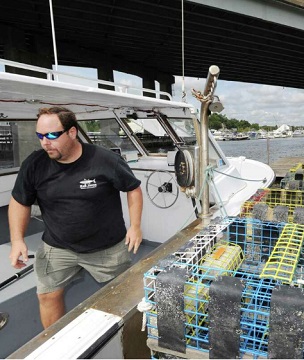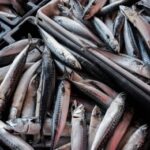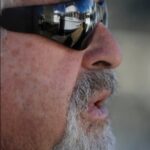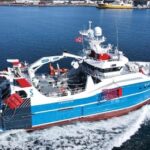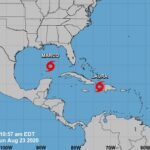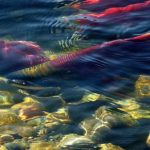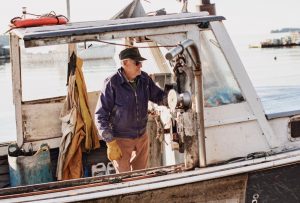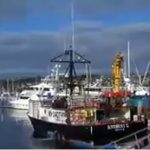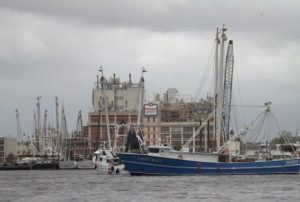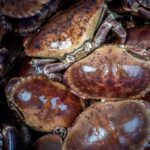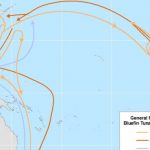Daily Archives: July 1, 2023
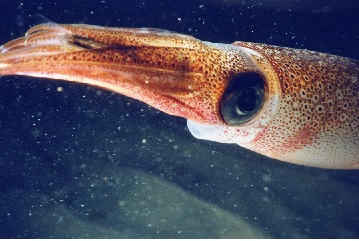
Cooler ocean means better business for squid fishermen off La Jolla
Though a cool and wet start to 2023 had many locals lamenting the weather, coastal fishermen and seafood lovers are celebrating an environmental perk: the proliferation of squid off La Jolla’s coast. “It’s a historical thing that happens,” said independent commercial fisherman John Law. He said the squid currently are abundant from the underwater canyons off Scripps Pier down to Crystal Pier in Pacific Beach and even into Baja California, Mexico. Catching squid is a “team effort,” said San Diego fisherman Kelly Fukushima. The squid feed at night, so catching them requires two boats: one to scout the squid and use lights to aggregate a school and a second to catch and haul in the squid. >click to read< 14:01
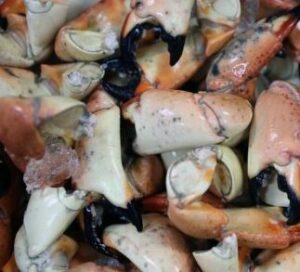
How Stone Crabs Built and Sustain Everglades City
Everglades City’s fishing families are resilient by virtue of necessity. The stone crab industry embodies this, dating back to Chokoloskee native and commercial crabber Ernest Hamilton. Ernest was first to recognize their fragility and potential. He halved the traditional cooking time, then blanched the claws in an ice bath, yielding delicate, sweet meat. A few years later, Ernest and others discovered they only needed to harvest the claws—the body remains inedible while the pinchers regrow within a year. On a cloudless April morning, I travel to Grimm’s Stone Crab in Everglades City to meet with the seafood market’s owner, Howie Grimm, and his son, Quinton. Howie also happens to be the town’s mayor, and Quinton is Ernest Hamilton’s great-grandson on his mother’s side. >click to read< 11:10
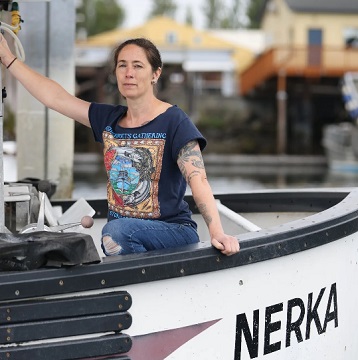
An Alaska fishery has been pitted against orcas. Can both survive?
In early May a Seattle federal judge put the brakes on this summer’s troll fishery in Southeast Alaska, ruling that the National Oceanic and Atmospheric Administration must amend its 2019 report on the impact of the fishing on endangered southern resident orcas who prefer to eat the same Chinook. But the ruling was put on hold last month by a U.S. appeals court, which allowed the fishery to reopen, citing economic harm. The complicated and contentious case probes the soft underbelly of the issue of the southern residents’ plight: the availability of nutrient-rich Chinook, their preferred meal. While fisheries up and down the West Coast are allocated fish for harvest each season, the southern residents get what’s left — and not intercepted by other predators. It has pitted fishers against orcas as some scientists and conservationists call into question the effectiveness of modern fisheries management. 9 photos, >click to read< 10:16

Corporate Welfare: Lawmakers pass controversial bill to give tax break to offshore wind developer
Lawmakers narrowly advanced fast-tracked legislation Friday that would give a Danish company a multimillion-dollar tax break for its offshore wind project, despite objections from Republicans who slammed it as “corporate welfare.” The bill would allow Ørsted, the company approved to build a 1,100-megawatt project 15 miles off the Atlantic City coastline, to keep federal tax credits that otherwise would return to ratepayers. The value of the credit would be $2.40 per year per ratepayer, by Ørsted’s estimate, but the company’s total potential savings is unclear. Critics questioned why legislators should give “a corporate bailout to a foreign company on the backs of New Jersey ratepayers,” as Assemblywoman Vicky Flynn (R-Monmouth) put it. >click to read< 09:25






